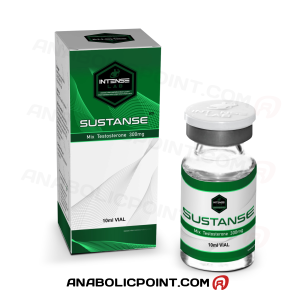Your basket is currently empty!
Legal Issues Surrounding Steroid Use in Bodybuilding Competitions: A Comprehensive Overview
Steroid use in bodybuilding competitions has been a topic of significant controversy and debate for many years. The allure of achieving an extraordinary physique quickly and efficiently through the use of anabolic steroids has enticed many athletes. However, these performance-enhancing substances come with serious legal, health, and ethical implications that affect not only the individual athlete but also the integrity of the sport itself.
Anabolic steroids, synthetic derivatives of the male sex hormone testosterone, are known for their ability to rapidly increase muscle mass, strength, and endurance. They are widely used across various sports, including bodybuilding, to gain a competitive edge. Despite their effectiveness, anabolic steroids are banned in most professional and amateur bodybuilding competitions due to their potential to create an unfair advantage and the significant health risks they pose. This article explores the legal landscape surrounding steroid use in bodybuilding competitions, the consequences for athletes caught using them, and the policies and regulations governing these substances in the sport.
The Legal Status of Steroid Use in Bodybuilding Competitions
The legality of anabolic steroid use varies by country and the level of competition. However, most bodybuilding organizations, including well-known bodies like the International Federation of Bodybuilding and Fitness (IFBB) and the World Anti-Doping Agency (WADA), prohibit the use of anabolic steroids. These organizations enforce strict anti-doping policies to ensure a level playing field for all competitors and protect the athletes’ health.
Steroid use is classified as illegal in many countries without a prescription. In the United States, anabolic steroids are classified as a Schedule III controlled substance under the Anabolic Steroid Control Act of 1990. This means that possessing, distributing, or using steroids without a prescription is a federal offense. Penalties for illegal steroid use can include criminal charges, fines, and even jail time.
Steroid Use in Professional and Amateur Bodybuilding Competitions
In professional bodybuilding, steroid use is widespread, despite being banned by organizations like WADA and the IFBB. Many athletes turn to anabolic steroids to enhance their performance, build muscle mass, and increase strength to meet the aesthetic and competitive standards of the sport. However, steroid use at the professional level is often masked by the extensive use of other substances like diuretics, growth hormone, and insulin, making it difficult to detect through drug testing.
For amateur bodybuilders, the temptation to use anabolic steroids is similarly strong, especially given the highly competitive nature of bodybuilding. The desire to gain a competitive edge or accelerate muscle growth can lead to the use of steroids, despite the legal risks involved. Many amateur athletes, especially those just starting out in the sport, may be unaware of the long-term legal and health implications of steroid use.
Legal Consequences of Steroid Use in Bodybuilding Competitions
The legal consequences of using steroids in bodybuilding competitions can be severe, ranging from disqualification from competitions to legal action and imprisonment, depending on the jurisdiction. In most professional bodybuilding competitions, athletes who test positive for steroids face immediate disqualification, loss of titles, and a ban from future events. This can significantly damage an athlete’s career, reputation, and financial prospects.
For example, in 2015, the IFBB issued a lifetime ban for several top athletes who tested positive for steroids, sending a clear message that the organization takes anti-doping rules seriously. Similar actions have been taken by other organizations, including the National Physique Committee (NPC), which also upholds strict policies against steroid use.
In addition to the athletic consequences, athletes caught using steroids in competitions can face legal repercussions. As mentioned earlier, anabolic steroids are classified as controlled substances in many countries, including the United States, where using or possessing them without a prescription is illegal. Athletes caught using steroids outside of legal frameworks can be subject to fines, legal fees, and even jail time.
Testing and Enforcement in Bodybuilding Competitions
One of the key ways that steroid use is regulated in bodybuilding competitions is through drug testing. Organizations such as WADA and the International Olympic Committee (IOC) have established anti-doping programs that include mandatory drug testing for athletes in various sports, including bodybuilding. These tests are designed to detect the presence of anabolic steroids and other performance-enhancing drugs in an athlete’s system.
Drug testing in bodybuilding is typically conducted through urine samples, although blood tests may also be used. The tests look for traces of banned substances, including anabolic steroids, human growth hormone (HGH), diuretics, and other compounds. The tests are random, meaning that athletes cannot anticipate when they will be tested. Positive test results can lead to disqualification from the competition, a suspension, or a ban from the sport altogether.
However, drug testing in bodybuilding has faced significant criticism. Many athletes and critics argue that the tests are often inadequate, given the sophisticated methods used by some bodybuilders to mask the presence of steroids in their system. For example, some athletes may use masking agents or employ “cycling” techniques, where they stop using steroids temporarily before a competition to avoid detection. These methods make it difficult to ensure fair competition and raise questions about the effectiveness of current anti-doping policies in bodybuilding.
The Ethics of Steroid Use in Bodybuilding Competitions
Beyond the legal consequences, steroid use in bodybuilding competitions raises ethical questions regarding fairness, safety, and integrity in the sport. At the heart of the debate is the issue of whether it is fair for athletes to use steroids to gain a competitive advantage. Critics argue that steroid use undermines the integrity of the sport and creates an uneven playing field, where those who do not use steroids are at a disadvantage.
Steroid use also raises concerns about the health risks to athletes. Bodybuilders who use steroids may suffer from a range of side effects, including liver damage, cardiovascular disease, infertility, psychological disorders, and hormonal imbalances. The long-term consequences of steroid use can be severe, and many bodybuilders who use steroids are at risk of serious health complications later in life. In light of these risks, the ethics of using steroids in bodybuilding competitions become even more controversial.
Moreover, there is the issue of the message that steroid use sends to younger athletes and aspiring bodybuilders. Many young athletes look up to professional bodybuilders as role models and may be influenced by their steroid-enhanced physiques. The use of steroids in bodybuilding competitions sends the message that success in the sport is not solely dependent on hard work, dedication, and natural talent, but also on the use of illegal and dangerous substances.
Legal Implications for Coaches and Support Staff
Steroid use in bodybuilding is not just a concern for the athletes themselves but also for coaches, trainers, and other support staff who may be involved in guiding athletes through their steroid cycles. In many countries, coaches and other support staff who assist athletes with obtaining or using steroids may face legal consequences, including criminal charges.
In 2005, several high-profile coaches in the United States were investigated for their involvement in providing steroids to athletes. These investigations led to arrests and legal actions against coaches and trainers who facilitated steroid use in sports. Coaches who are found to be directly involved in doping practices may face professional and legal repercussions, including loss of their coaching licenses, career damage, and potential jail time.
The Future of Steroid Regulations in Bodybuilding
As bodybuilding continues to evolve, so too will the regulations surrounding steroid use. While many organizations have adopted stricter drug-testing policies, there is still much work to be done to ensure fair competition and athlete safety. Some critics argue that bodybuilding organizations need to invest more in research and testing technologies to detect steroids more effectively, while others call for a reevaluation of the role steroids play in the sport.
In recent years, some bodybuilding organizations have even proposed allowing steroid use in competition under controlled circumstances. Proponents of this approach argue that it could help level the playing field by eliminating the need for athletes to cheat or hide their use of steroids. However, this controversial proposal has been met with strong opposition from those who believe that steroid use is detrimental to the sport and should remain banned.
Frequently Asked Questions About Steroid Use and Legal Issues in Bodybuilding Competitions
- Is steroid use legal in bodybuilding competitions? In most bodybuilding organizations, steroid use is prohibited. Steroids are classified as controlled substances in many countries, making their use without a prescription illegal.
- What are the legal consequences of steroid use in bodybuilding? Athletes caught using steroids in bodybuilding competitions can face disqualification, suspension, or lifetime bans from the sport. Legal consequences may include fines, legal fees, and imprisonment in some jurisdictions.
- How are steroids detected in bodybuilding competitions? Steroid use is detected through drug testing, typically involving urine samples, to check for banned substances like anabolic steroids, human growth hormone, and diuretics.
- What happens if an athlete fails a drug test in bodybuilding? Athletes who fail a drug test may be disqualified from the competition, have their titles revoked, and face suspensions or bans from future competitions.
- Are there any bodybuilding organizations that allow steroid use? Most reputable bodybuilding organizations, including the IFBB and WADA, have strict anti-doping policies that prohibit steroid use. However, there is ongoing debate about whether steroid use should be allowed in bodybuilding.
- What health risks are associated with steroid use in bodybuilding? Steroid use can lead to liver damage, cardiovascular disease, infertility, hormonal imbalances, psychological issues, and other severe health complications.
- Can coaches be legally held responsible for steroid use in athletes? Yes, coaches and support staff who assist athletes in obtaining or using steroids may face legal consequences, including criminal charges and professional sanctions.
- What are some ethical concerns regarding steroid use in bodybuilding? Ethical concerns include fairness in competition, athlete safety, and the negative influence on younger athletes who may be encouraged to use steroids to achieve similar results.
- How can bodybuilding competitions maintain fairness without steroid use? Bodybuilding organizations can enforce stricter drug testing policies, improve testing technologies, and focus on promoting natural bodybuilding to ensure fair competition.
- What are the long-term consequences of steroid use in bodybuilding? Long-term steroid use can lead to significant health risks, including organ damage, hormonal imbalance, mental health disorders, and potentially lifelong medical complications.
Final Thoughts: The Ongoing Debate of Steroid Use in Bodybuilding Competitions
Steroid use in bodybuilding competitions remains one of the most contentious issues in the sport. While anabolic steroids offer significant performance-enhancing benefits, their use carries serious legal, ethical, and health risks. As the sport evolves, there is increasing pressure to address these issues and ensure that bodybuilding competitions are fair, safe, and free from illicit performance enhancement. Athletes, coaches, and organizations must continue to work together to create a regulatory framework that protects the integrity of the sport and the health of the athletes involved.












